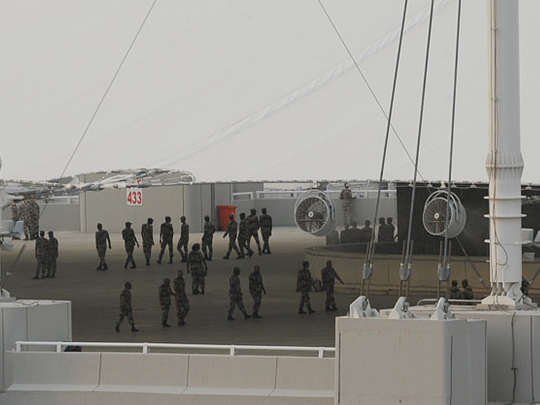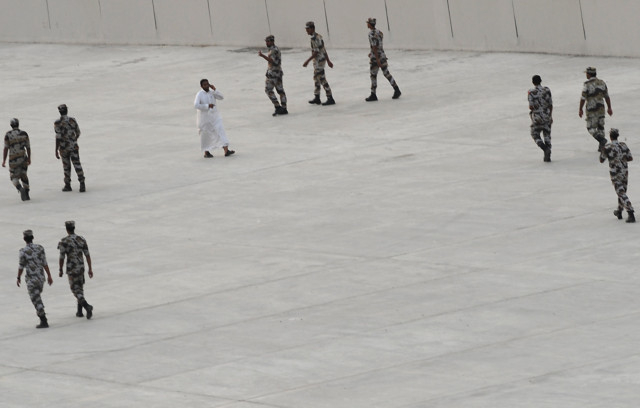
Manama: A 300-kilometre security cordon has been established around the sacred city of Makkah where Muslims are congregating to perform Haj (pilgrimage) to keep away infiltrators.
Thousands of people without proper papers have been attempting to enter the city in western Saudi Arabia, often by taking rugged dirt roads and through hills to reach the sacred sites.
However, the police have established the cordon that includes 30 fixed checkpoints and 50 mobile patrols to monitor the perimeter of the city, local Arabic daily Al Eqtisadiya reported on Sunday at the start of the six-day Haj season.
A special support force of 200 members is on permanent standby for emergency cases, sources told the newspaper.
The Saudi authorities have warned that they would not allow people planning to perform Haj to enter the holy sites if they are not registered with accredited Haj operators.
The decision is based on security and organisational concerns related to the large crowds expected to congregate in the area.
According to the daily, 31,294 Saudis and foreigners have been turned back at the security checkpoints in the last six days.
The police were able to detain 12,641 Saudis and foreigners for breaking the Haj regulations and to bust 75 bogus operators who cheated people.
The police also turned back 22,227 cars as they attempted to reach Makkah without possessing the required documents. The operation allowed the police to impound 2,606 vehicles for breaking the rules, the daily said.
More than 4,000 vehicles and 1,400 motorcycles were seized by the police for transporting people to the suburbs of Makkah even though they did not have the papers they needed to enter the city.
Although Saudi authorities have tremendously improved the mass movement of around three million people in a tight area during the Haj, making it faster and smoother, they still have to face formidable challenges posed by people not abiding by the regulations.
Several Saudis and expatriates try to take advantage of the Haj season to make money by making false promises to trusting people keen on performing Haj or by offering “secret passages” to the holy sites to those who are not registered with a Haj operator.
Pilgrims congregate on Mount Arafat in the outskirts of Makkah on Monday for a day of prayer and supplication.
Haj, the fifth and last pillar of Islam, requires all physically fit and financially able Muslim men and women to perform Haj at least once in their lives.













